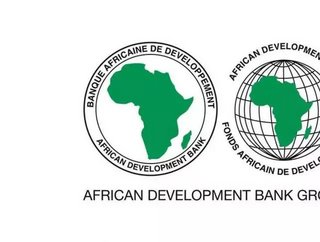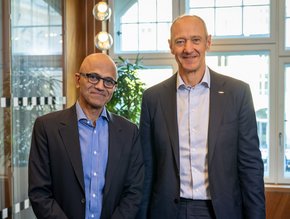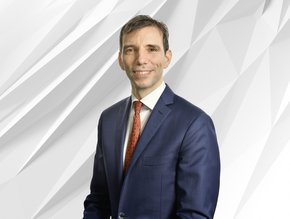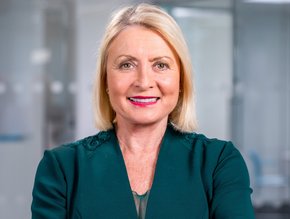The African Development Bank and Infrastructure financing

At the UK-Africa Investment Summit 2020, Dr. Akinwumi A. Adesina, President of the African Development Bank, delivered his keynote speech by calling for the financing of sustainable infrastructures in Africa.
Adesina opened his speech by honouring the partnership between the African Development Bank and the Department for International Development (DFID), which has been a major supporter of the bank since 1983. Through the bank’s operations and support from DFID, over 18 million people have been connected to electricity, over 101 million people given access to improved transport and 60 million people given better access to cleaner water and sanitation.
“Without any doubt, DFID and the UK government’s investment in the African Development Bank pays off and delivers huge impacts in Africa,” he said, “So I’d like to especially thank the UK Secretary for international development, Mr Sharma, Nick Dyer and his colleagues at DFID for making the UK proud with its investments at the African Development Bank. Together we will do more for expanding infrastructure for Africa.”
[image: Dr. Akinwumi A. Adesina]
The infrastructure financing gap
Adesina emphasised the financing opportunities in Africa across the travel, water and sanitation, IT and energy sectors; a US$68-108bn annual investment opportunity. He reflected on the evolution of the communications market, which marked a giant technological shift in Africa: “Just under two decades ago, Africa had fewer telephones than Manhattan in New York. Today Africa has over 440 million cell phone subscribers. Returns on digital infrastructure are very high as the continent expands broadband infrastructure to boost connectivity and improve services.”
He moved to the subject of energy, where the potential is almost limitless in the continent. With other 600 million individuals demanding electricity, the market for renewable energy – particularly hydropower, wind, solar, thermal and geothermal – remains untapped.
“But many of these opportunities can’t be realised unless we invest a lot more in project preparation to make projects bankable. The African Development Bank through its NEPAD infrastructure project preparation facility has helped to mobilise financing for $8.5bn of infrastructure projects. That’s a leverage ratio of 1:525,” he explained.
“We helped to establish Africa 50, an institution to support infrastructure project preparation and financing. It has raised over $860mn and will now be establishing a $1bn third-party private fund to finance infrastructure investments by the private sector on a commercial basis,” he said.
The Sustainable Energy Fund for Africa (SEFA), a component of the bank, has already supported over $800mn in investments for renewable energy.
A majority of infrastructure financing is carried out by governments. While many other countries borrow from other nations in order to finance infrastructure, Adesina urges that greater focus should also be put on ensuring that governments attract the private sector into infrastructure financing.
The African Development Bank and the DFID are currently looking into the use of synthetic securitization for the sovereign portfolio of the African Development Bank. This will allow the transfer of sovereign risk to the market while working with insurers in the UK. “Because the bulk of infrastructure is financed through foreign loans, and the revenue streams are in local currency, it introduces high financial and forex risks to investors. Using swaps and hedging are effective, no doubt, but more can be achieved by focusing on local currency financing. This will also help with debt sustainability as the bulk of Africa’s external debt is on infrastructure.” It is for this reason that the bank launched the African Domestic Bond Fund in order to support the development of infrastructure debt markets in Africa.
In addition to this, the African Development Bank also has a Private Sector Credit Enhancement Facility. The bank uses this facility to reduce risks of financing private infrastructure projects in fragile states. “And it works,” said Adesina, “so far with $500mn in credit guarantees, provided through the African Development Fund, it has leveraged $2.5bn of financing into fragile states. And the default rate is zero.”
With strong conviction, Adesina concluded his keynote by saying that Africa's Infrastructure financing demand will be met through the use of innovitive instruments, the creation of oppourtunities for the private sector and by supporting governments to operate accordingly.
“Together let’s do more to accelerate sustainable infrastructure investments in Africa,” he concluded.
SEE MORE:
- UK-Rwanda relations post UK-Africa Investment Summit 2020
- African Development Bank: entering the London Stock Exchange
- African Development Bank: upskilling the next generation
- Read the latest issue of Business Chief, Africa edition, here
About the summit
The Summit, which took place last week in London, welcoming 16 African leaders, sought to present the UK as an investment partner of choice to the nation and its leaders.
Those in attendance included: President Sisi of Egypt, President Kenyatta of Kenya, President Buhari of Nigeria, President Akufo-Addo of Ghana and President Kagame of Rwanda, and African business leaders including CEO of Standard Bank Gert Vogel and CEO of Investec Hendrik Du Toit.
Prominent business executives from the UK were also in attendance, including: CEO of Vodafone Nick Read, CEO of BP Bernard Looney, CEO of Standard Life Aberdeen Keith Skeoch, CEO G4S Ashley Martin Almanza, CEO of Associated British Foods George Weston, and CEO of the London Stock Exchange Group David Schwimmer.
“Her Majesty’s Trade Commissioner for Africa at the Department for International Trade, Emma Wade-Smith OBE, said: “The UK-Africa Investment Summit will showcase the UK’s unique offer to Africa and the breadth of exciting investment opportunities that exist across the African continent. We want the UK to have the biggest positive impact of any foreign investor, in terms of creating and sustaining quality jobs, and supporting inclusive growth and sustainability.”
Watch the UK-Africa Investment Summit 2020 here.
For more information on business topics in the Middle East and Africa, please take a look at the latest edition of Business Chief MEA.






